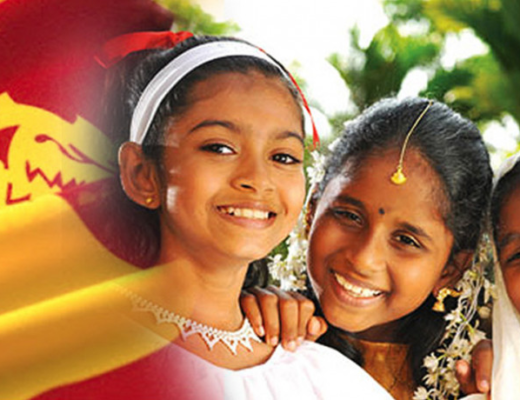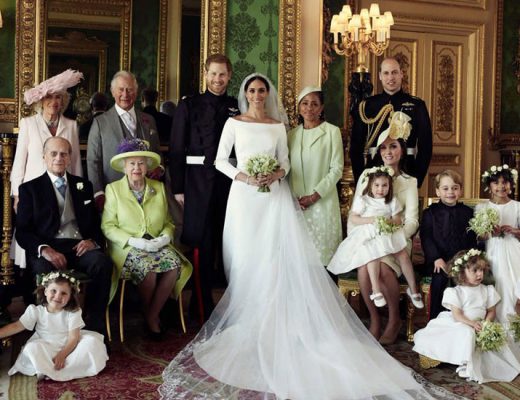Venerable Maduluwawe Sobitha Thera was recognised as a noble Buddhist monk who committed his whole life to social service. The Venerable monk never indulged in selfish motives. Some Buddhist monks have joined various political parties and dabble actively in politics. Venerable Maduluwawe Sobitha Thera focused on working for the ordinary man. Therefore, the late Thera was considered one of the holiest priests, who earned respect from the public. Venerable Maduluwawe Sobitha Thera’s sixth death anniversary was commemorated at the Rajamaha Viharaya in Kotte a few weeks ago.
Early Life
He was born to Pathirage Don Peiris Appuhamy and Kuruwita Arachchige Karalinahamy in a remote village called Maduluwawe. Educated initially at Maduluwawe mixed school, as a child, he displayed unique qualities that were different from other young children and decided to take up robes as a Buddhist monk on 15 June 1952.
The Venerable Sobitha Thera entered the Vidyodaya University in 1963 and mastered Sinhala, History, and Buddhist Culture. In 1967, he received his honorary Degree in History. Subsequently, he commenced teaching at Udawa Nalandarama Pirivena, Ethul Kotte Parakumba Pirivena and Gangodawila Subadrarama Pirivena.
In 1995, the Ven. Thera bade goodbye to the teaching profession to dedicate his life to social service. He joined the Ceylon Non-Alcoholic Young Society, Sinhala Bala Mandalaya and National Buddhist Association. On several occasions, the Venerable Sobitha Thera faced many cases of abuse, assault, and disgraceful blather, but the late monk took all such criticism with a grain of salt. This very reason made the Venerable Thera stand out as a remarkable priest.
Final Stages in Life
The Venerable Sobitha Thera dedicated the last stages of his life entirely to bringing about a just society in Sri Lanka. His outstanding character as a Buddhist priest was respected and seen as a holy monk. From the time he was ordained, he earned respect from the public. Venerable Maduluwawe Sobitha Thera neither sought any responsible positions in society nor neglected any vihara activities. As a Buddhist monk, the Venerable Thera treated everyone without being partisan.
Narrow-mindedness was not in his forte. Still, when society faced disasters, Sobitha Thera never searched politicians’ or any individual’s luxury homes. Neither did he go back to his village, Maduluwawe. Instead, the Venerable Sobitha Thera mostly spent his time on streets and villages, helping the folks who faced disasters. Consequently, everyone remembers the Venerable Sobitha Thera to this day.
Politics
Politics links life and religion. These two aspects go hand-in-hand and cannot be separated. Religion, of course, is limited to prayers and stanzas (Gathas) as external activities, but one should accept one’s religion as a practice to improve one’s life. Those Buddhist monks who become concerned with politics are generally from the universities seeking education!
Usually, the young Bhikkhus, who attend universities, always get involved with protest marches and strikes, which has become the norm of the present Sri Lankan society. It is a total waste of time when Buddhist monks get involved in politics. Any Buddhist priest engaged in politics and contests for Parliamentary Elections, or Local Elections will be a reeking experience for the religion. Such Buddhist monks returning to their temples after contesting Parliamentary Elections or Local Elections to temple life are detrimental to Buddhism.
Politics and the Buddhist Priest?
Is politics suitable for Buddhist priests? It is a million-dollar question. There is no proper feedback to date from the Vidyalankara University on what Venerable Walpola Rahula Thera presented in an esteemed paper on Sri Lankan politics. It was a balanced analysis, and it dealt with the problem of the peoples’ welfare and political and spiritual life.
Looking back at the history of Ceylon (Sri Lanka) it has proven that Buddhist priests came forward bravely whenever the country faced adversities during ancient times. Not a single Buddhist priest in the country’s long history has participated to represent a single political party or towards a single leader of a political party. The Buddhist monks came only to guide rulers for the nation’s sake.
The present trend seems to be that some modern monks are utterly arrogant in their attitude. It is totally against the Buddhist philosophy to become self-centred or get involved in politics or join political parties and come on to the streets to participate in protest marches and strikes. Such behaviour is clear cut proof to differentiate then and now.
Ven. Maduluwawe Sobitha Thera expressed his views in participating in politics as follows:
“I received invitations to contest Parliamentary Elections for the Colombo District, but I declined it because I felt that Buddhist priests should not get involved in politics. Buddhist monks’ behaviour should be unselfish, and if we, as Buddhist monks, do get involved with politics, then ‘Ven. Maduluwawe Sobitha Thera’ would have become branded to a particular political party. We have a broader political arena, and it is what the Venerable Walpola Rahula Thera pointed out in his invaluable brief to the Vidyalankara University. Only by refraining from politics, Buddhist priests, we will be able to identify what is wrong and what is right!”
Although some political parties recognised the young Bhikkhu (Venerable Sobitha Thera) as a ‘political tool,’ the Venerable Thera’s abstinence from politics, at later stages, helped to remain a respected monk. Should Venerable Sobitha Thera contest any political party, indeed, he would have ended up with a thumping majority. In such circumstances, the revered monk would have lost his deference. The word hatred, particularly on nationalistic issues, was never in his vocabulary. If Buddhist priests were to get involved in activities such as terrorism, which lasted for thirty years, it would have created a gloomy reflection towards Buddhism throughout the country.
Mahanayake Theras’ viewpoint
Mahanayakes never endorsed Buddhist priests to get involved in Parliamentary Elections. Yet, we have seen some defiant Buddhist monks’ promises to form sacred governments once they come to power through the ballet! It is catastrophic for such statements to come out of Buddhist monks.
“It is a misfortune that some of the present-day Buddhist monks attempt to form political parties relentlessly and get involved in politics and engage in politics full-time. Buddhist priests, who enter politics, will never form a sanctified government. That is according to Buddhist philosophy. Buddhist monks who engage in politics will destroy the fabric of the Lankan Buddhist society and undoubtedly affect the religious coherence. Some Buddhist monks have turned into puppets by attempting to seek power! Some represent the ordinary citizen with grown hair and ‘stylised’ beards and haircuts! Buddhist monks should absorb only in Dhamma and set an example to the laity out of their behaviour. If they get involved in politics to take political decisions, then they are inclined to become political puppets.”
One cannot expect a genuine service from a Bhikkhu who enters the monkhood due to poverty or cannot afford to enter a university out of poverty. They must first associate with honest teachers before committing to the priesthood to lead a purposeful life as a monk.
Venerable Sobitha explains it thus:
“When a child comes to a temple with parents to enter the priesthood, he needs to spend a year at least in the temple so that the senior monks may assess whether the child is capable of being disciplined! He needs to wake up early in the morning, clear the dining hall and do other chores in the temple. I used to wake up as early as 4:00 a.m. and did sweeping of the whole temple premises. I used to clear all the clutter in the dining area, did all the washing up etc. Some days, we did not get our dana (lunch), and I used to help ‘James uncle,’ who used to cook in the temple for emergencies. I helped him scrape coconuts, cut onions, etc. Some days I had to cook breakfast and lunch as well. I believe that the challenge I spent for a year did help me in the long run because I learnt all chores and was able to supervise the young monks.”
What is essential in Venerable Sobitha Thera’s life is how he committed himself, as a Buddhist priest, and undertook to work for the welfare of the people. The honour he earned was automatic out of his selfless service. Venerable Sobitha Thera’s character was how he was affectionate with other religions. Venerable Sobitha Thera never tried to blight other faiths, and he was in total disagreement with Buddhist priests getting involved in politics.
Today, the public can observe how young Buddhist priests lack understanding and engage in social media platforms to make disquieting statements. Little do they realise how they incite racial and religious hatred. It all boils down to politics, the difference between a Buddhist priest and a layman exposes outwardly. It is a disgrace to Buddhism how some of these Buddhist monks talk about Sri Lanka and religion to spread hatred.
Why cannot such young Buddhist monks set an example to themselves and emulate the late Venerable Sobitha Thera remains a big question mark! It, of course, is a tragedy.
Courtesy:
Prof. Sarath Wijesuriya – Sinhala Section of the Colombo University. (Translated from his book – Ape Hamuduruwo).






